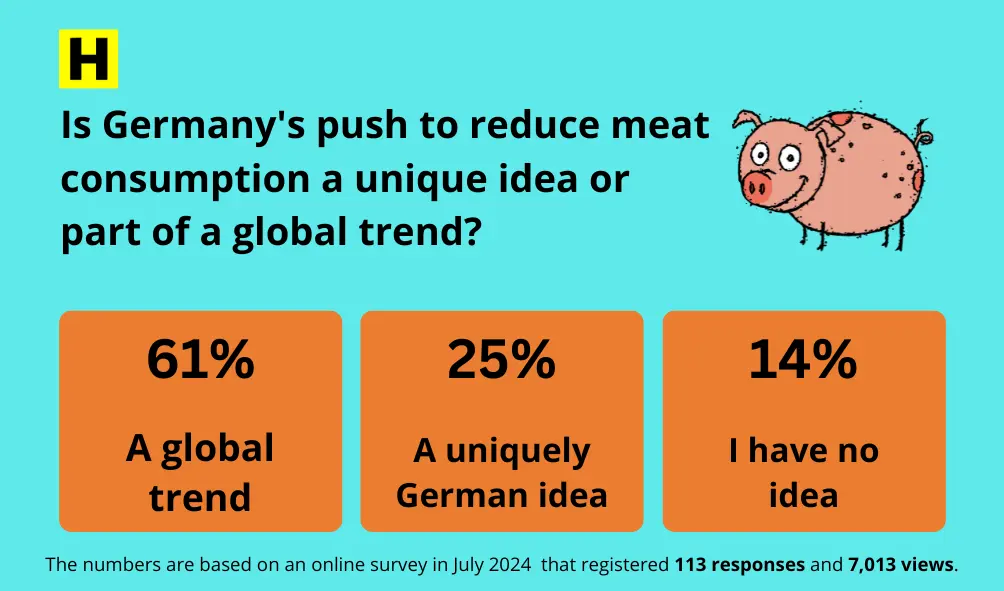As the conversation around sustainability and healthy living grows louder, the topic of meat consumption has come to the forefront, particularly in Germany. But is this shift in dietary habits a uniquely German phenomenon, or is it part of a larger global trend? To gain insights, we conducted an online survey. Here’s what we discovered.

The Global Movement Towards Reduced Meat Consumption
According to our survey, a significant 61% of respondents believe that the movement to reduce meat consumption is a global trend. This suggests that concerns over health, environmental impact, and animal welfare are influencing dietary choices worldwide.
Countries across different continents are witnessing a rise in vegetarian and vegan lifestyles. For instance, plant-based diets have gained substantial traction in North America, Europe, and parts of Asia. Governments and organizations are also promoting reduced meat consumption, reflecting a shift in public policy and consumer behavior.
Germany: A Pioneer or a Participant?
Interestingly, 25% of the survey participants think that the reduction in meat consumption is a uniquely German idea. Germany has indeed been at the forefront of this movement, with a notable increase in the popularity of vegetarian and vegan diets.
Several factors contribute to this trend in Germany, including a strong emphasis on environmental sustainability, high awareness of animal rights, and an abundance of plant-based food options. German supermarkets and restaurants have responded by offering a wide range of meat alternatives, making it easier for consumers to make the switch.
Uncertainty Remains
Despite the clear trends, 14% of respondents admitted they had no idea whether the shift towards reduced meat consumption was global or uniquely German. This indicates a need for more widespread education and awareness about dietary impacts and global trends.
The movement to reduce meat consumption appears to be both a global trend and a strongly supported initiative within Germany. As awareness continues to grow, we expect more people worldwide to reconsider their dietary choices in favor of more sustainable options.
 Croatian
Croatian Danish
Danish French
French German
German Greek
Greek Polish
Polish Portuguese
Portuguese Romanian
Romanian Russian
Russian Spanish
Spanish Turkish
Turkish